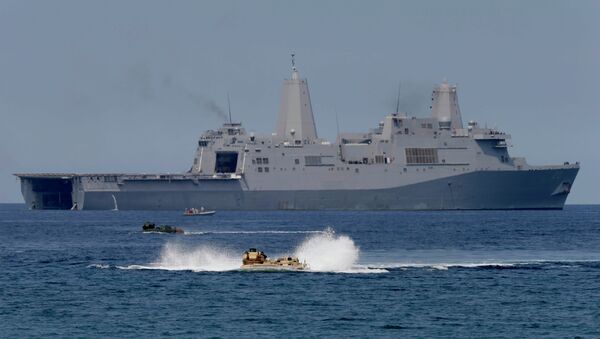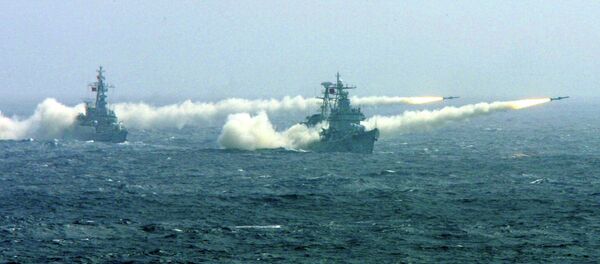"Seven or eight countries have various claims to various pieces of sand in various parts of the South China Sea and the United States has been making mischief with that for a long time," Debar tells Loud & Clear host Brian Becker.
"Look at a map and see how many US naval bases there are around China, and then imagine one of those [off] the East Coast, or somewhere off the California coast, and it would be treated as a major threat."
As Beijing carries out military exercises in the waterway, a Chinese state-run newspaper warned that continued Pentagon activity in the South China Sea would be viewed as a provocation.
"I think China is well aware of the fact that it has this huge military cache aimed at it, and it’s at least entitled to say this is an existential threat or a threat to national security," DeBar says.
Increasing military posturing by the Pentagon in the region is seen by some to be a response to concerns that the United States is losing its international influence.
"If you look China and the US in Africa, China and the US in Latin America, at the end of the day, the United States offers people another looting session, and China offers them development," he says. "In terms of geopolitics, the leadership of the United States has to see that their days are numbered, if they don’t take some sort of an affirmative step to stop that from maturing."
While Washington has taken steps to boost relations with Pacific nations, including President Obama’s recent decision to lift an arms ban on Vietnam, these are unlikely to make up for America’s past transgressions in the region.
Even America’s strongest allies in the region are beginning to recognize China’s undeniable role in their future.
"I think that, long-term, anyone who’s really paying attention in these countries – even South Korea – sees that their future has China very definitely involved."
The Philippines, which brought the ICJ arbitration suit against China, has indicated that it is not willing to go to war with China over the Hague’s ruling. This is also interpreted by some as a sign of Washington’s waning influence.
"It does seem, in terms of the surface of the political game in the Philippines, that there has been a change in direction," DeBar says.
"Hopefully, that is going to mean something expressed in policy. That, if the United States is hell-bent on driving towards war with China, or near-war with China, or a heightened military state with China, that the Philippines may not be a reliable partner."




